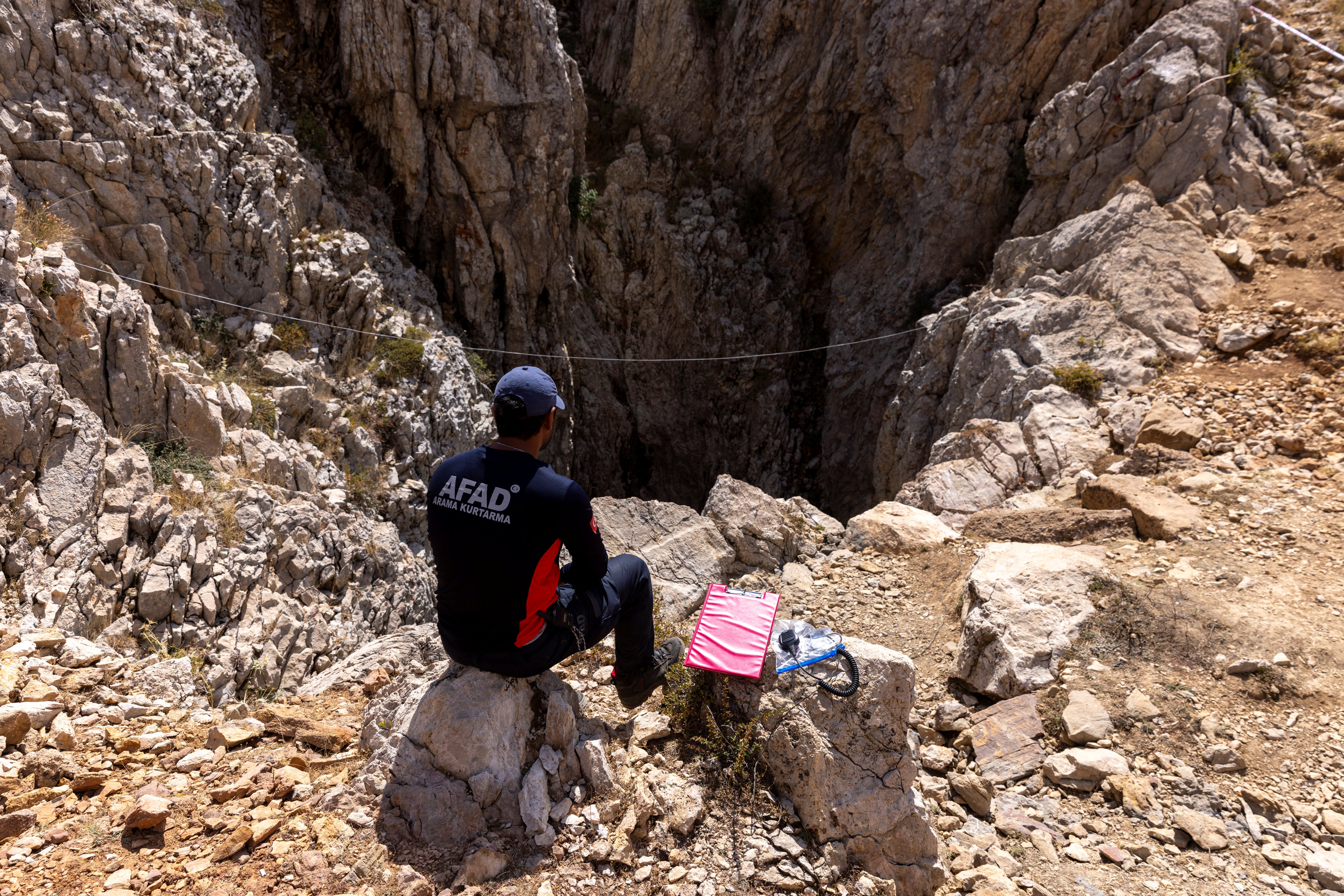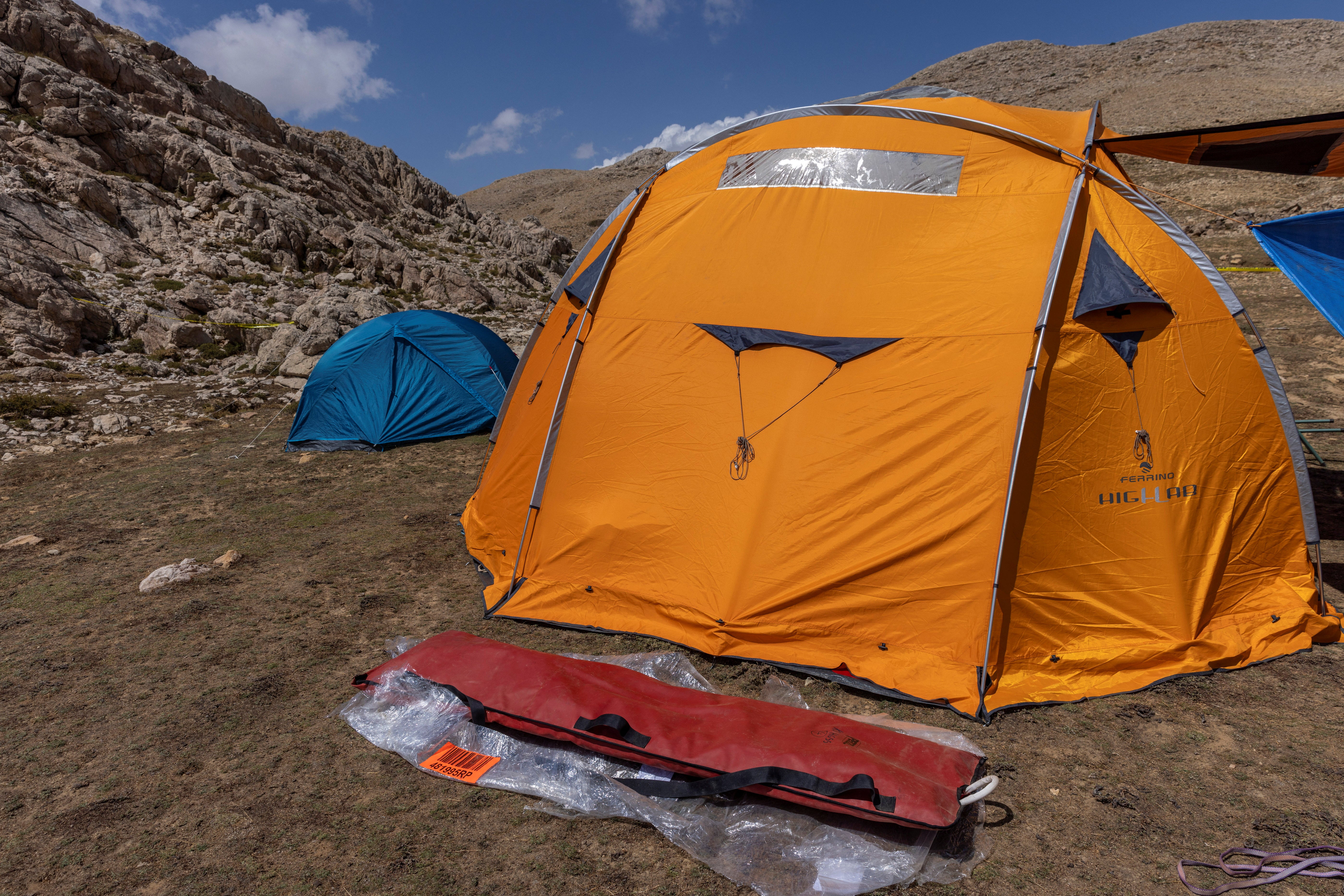Rescue of American explorer trapped in Turkey cave has begun, officials say
Mark Dickey suffered gastrointestinal bleeding while exploring the Morca cave last Saturday
Your support helps us to tell the story
From reproductive rights to climate change to Big Tech, The Independent is on the ground when the story is developing. Whether it's investigating the financials of Elon Musk's pro-Trump PAC or producing our latest documentary, 'The A Word', which shines a light on the American women fighting for reproductive rights, we know how important it is to parse out the facts from the messaging.
At such a critical moment in US history, we need reporters on the ground. Your donation allows us to keep sending journalists to speak to both sides of the story.
The Independent is trusted by Americans across the entire political spectrum. And unlike many other quality news outlets, we choose not to lock Americans out of our reporting and analysis with paywalls. We believe quality journalism should be available to everyone, paid for by those who can afford it.
Your support makes all the difference.Rescue efforts have begun for an ailing US researcher stuck 3,000 feet inside a Turkish cave, the Turkish disaster management agency says.
Rescue teams began the challenging process on Saturday of extricating Mark Dickey, who became seriously ill while he was exploring the Morca cave near Anamur in the south of Turkey last week.
However, it could take days to bring Mr Dickey, 40, to the surface since rescuers anticipate he will have to stop and rest frequently at camps set up along the way as they pull his stretcher through the narrow passages.
“This afternoon, the operation to move him from his camp at 1,040 meters to the camp at 700 meters began,” according to a statement from Turkey’s Disaster and Emergency Management Directorate, AFAD, to the Associated Press.
The 40-year-old experienced caver began vomiting because of stomach bleeding while on an expedition with a handful of others in the Morca cave in southern Turkey’s Taurus Mountains.
Teams of rescuers from across Europe have rushed to Mr Dickey’s aid.
A Hungarian doctor reached and treated him inside the cave on 3 September, as doctors and rescuers have since been taking turns caring for him.
Recep Salci, head of AFAD’s search and rescue department, said the rescue will depend on Mr Dickey’s condition.
“If he feels well, we will assist him, and he will come out (of the cave) fast. But if his condition worsens, we will have to bring him up on a stretcher.”
In a statement, the European Cave Rescue Association said he suffered gastrointestinal bleeding, rendering Mr Dickey unable to leave the narrow cave on his own.
“The injured caver is a well-known figure in the international speleological community, a highly trained caver, and a cave rescuer himself,” the ECRA said in its first update, adding that an “international rescue effort is on the way”.
Currently, 190 personnel from eight countries are assisting, including doctors, paramedics and experienced cavers, Mersin governor Ali Hamza Pehlivan told media on Saturday.
He added that 153 of them were search and rescue experts.

“We have received information that [Mr Dickey’s] condition is getting better, thanks to medical intervention. He has been in stable condition as of yesterday,” he added.
Outlining some of the challenges of the mission, Yusuf Ogrenecek, of the Speleological Federation of Turkey, said one of the most difficult tasks of cave rescue operations is widening the narrow cave passages to allow stretcher lines to pass through at low depths.
“Stretcher lines are labour intensive and require experienced cave rescuers working long hours,” Mr Ogrenecek said, adding that other difficult factors range from navigating through mud and water at low temperatures to the psychological toll of staying inside a cave for long periods of time.
In Rome, Federico Catania, the spokesman for Italy’s National Alpine and Speleological Rescue, described the cave as one of the deepest in the world.
“The cave is made up of many vertical shafts, so many sections that are extremely vertical with few horizontal sections where (the) rescuers are setting up temporary camps,” he said.

Ahead of the rescue operation beginning on Saturday evening,The New York Times reported that rescuers were using explosives to widen parts of the extremely narrow cave so that a stretcher could fit through these passages.
It typically takes a person in good health around 15 hours to exit.
The parents of Mark Dickey have said “our prayers are being answered” as the rescue operation gets underway.
In a statement obtained byMail Online, Andrew and Deborah Ann Dickey said: “We are extremely grateful to the international caving community volunteers who have demonstrated such support for our son.
“Mark is strong, but he needed his fellow cavers, including, of course, doctors to allow a devastatingly scary situation to turn positive,” their statement read.
They also said they are “thankful” Mr Dickey’s fiancee and fellow caver, Jessica “has been with him during this ordeal”.
“Our prayers are being answered and we cannot express how much that means, and will always mean to us.”
Additional reporting by agencies.




Join our commenting forum
Join thought-provoking conversations, follow other Independent readers and see their replies
Comments